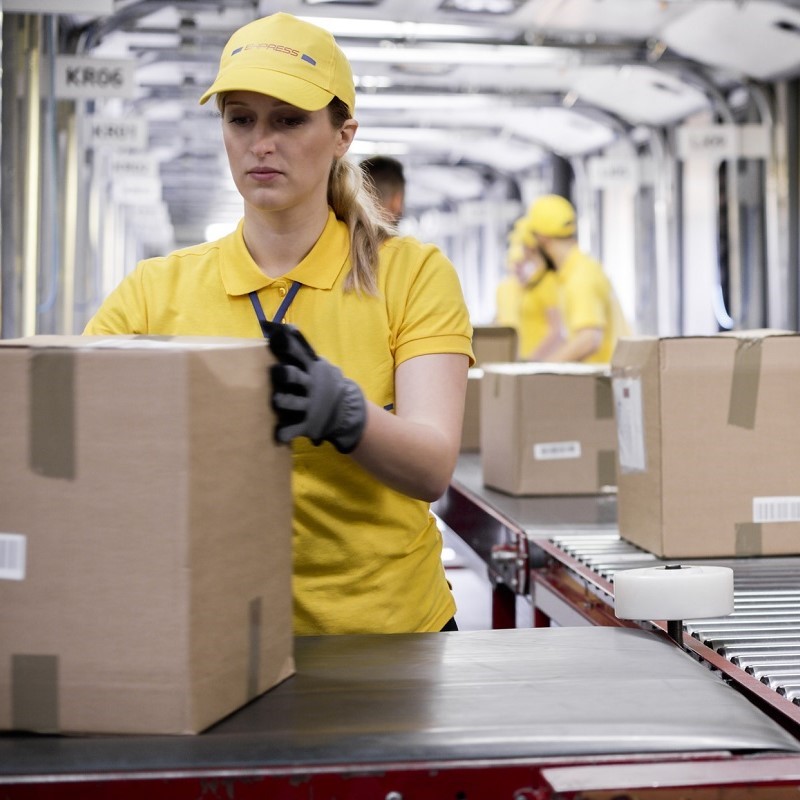28.10.2020
Last but not least - the last mile

Innovations on the short haul
Particularly in view of the approaching second wave of the coronavirus and another lockdown, there is a renewed focus on innovations, such as how companies can make fast, safe and cheap deliveries to customers over the last few metres. According to the German Parcel and Express Logistics Association (BIEK), 3,650 million parcels and packages were delivered in Germany in 2019 alone - more than twice as many as 10 years ago. In 2020, the year of the coronavirus, this figure was presumably already reached by the end of the third quarter.
However, online retail is making urban logistics increasingly confusing. Countless, mostly small, consignments are distributed to private households throughout the urban area or in remote rural areas.
Another factor is that customer demands are increasing, for example in the form of same day delivery, delivery at the desired time, or an option to redirect the parcels to another location while the order is still in progress. In light of generally higher volumes of traffic, there is also a steady increase in dynamics and complexity in terms of the last mile.
It is clear even now that the last mile is the biggest cost factor; added to that is the lack of parking and stopping places, especially in conurbations.
New possibilities are therefore needed to deal with this mix of dynamics and complexity.
According to a study by DHL, there is firstly a need for flexible transport networks that use available capacity more efficiently, and an increase in capacity utilisation to achieve a faster connection to the customer. Secondly, automation must be used to improve productivity and data management must be optimised to make route planning more effective.
In order to meet customer requirements, a major logistics company has planned a 20,000 square metre logistics area for a Modular Delivery Station in Leipzig where temporary storage and distribution activities are to take place. The aim is to set up a distribution centre, speed up deliveries and take care of the last mile on its own. For example, the company is setting up a delivery partner programme that provides financial support for the corporate launch of individual parcel delivery services. This is being done, for example, through start-up capital, access to delivery technology, leasing offers for vehicles to make the deliveries, discounts on tax or accounting software, legal advice, training, insurance, etc. In addition, the company is investing in self-driving and emission-free cars, such as the robot car from Zoox.
The complex structures of the last mile raise a variety of issues. Numerous areas of law are affected, such as distribution law, corporate law, labour law, tax law and real estate law. Contractual links in partner programmes or project and joint venture agreements in which a large number of participants collaborate to revolutionise last mile logistics are challenging. The main questions that arise here concern the allocation of liability, which is closely linked to the influence exerted by the respective partners on the course of business. Cost, risk, and profit allocation must be clarified, as must environmental protection and sustainability requirements, while at the same time taking urban development concepts and the partner’s own city logistics into account. For example, the creation of smaller warehouses and depots raises many questions concerning the permits or licenses required to do so, for example whether these are to be created in stores in German pedestrian zones that have previously been used for retail.
In the age of the gig economy, nothing will work without a "digital platform" linking traffic data from cities, logistics providers and customers; this will necessitate collaborative governance models that ensure data security and sovereignty.
Regarding the labour law challenges of the last mile, please refer to our blog post "Everything - right now".
Luther Rechtsanwaltsgesellschaft will continue to explore the issue of the last mile in a series of webinars between 6 and 24 November 2020, and will also take a closer look at further developments and future adjustment requirements from various areas of law. You definitely won’t want to miss it!

Dr Klaus Schaffner
Partner
Leipzig
klaus.schaffner@luther-lawfirm.com
+49 341 5299 0